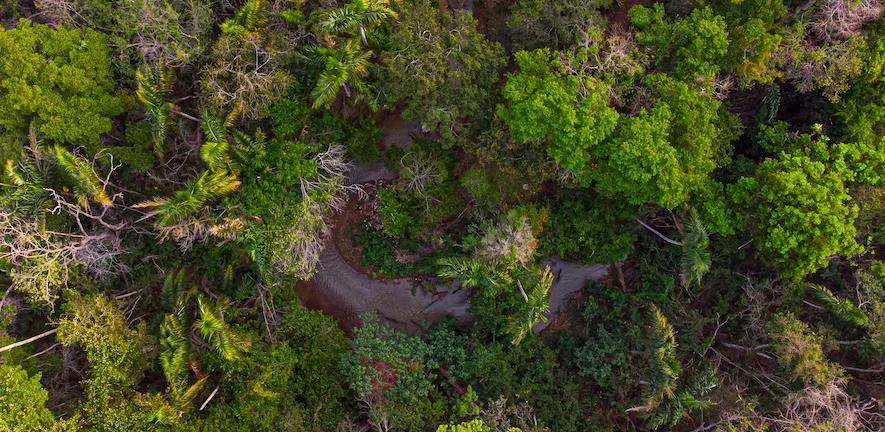We launched the Cambridge Centre for Carbon Credits (4C) in early November 2021. Our first goal is to scale up the supply of deforestation avoidance carbon credits in order to halt tropical deforestation as soon as possible. We have published software prototypes and original science on the topic.
Our Approach
The Cambridge Centre for Carbon Credits (4C) is creating digital tools and a trusted, decentralized platform to help purchasers of carbon credits to confidently and directly fund trusted deforestation avoidance projects, bringing together corporate funders and conservationists via automated and transparent smart contracting tools.
If you're a conservation organisation interested in using our digital carbon credits calculation platform to issue robust credits, please get in touch. We are currently operating on moist tropical forests, with a view to expanding out to other forests (seasonal dry, temperate, and coastal mangroves) in a future phase.
If you're a Web3 developer who wants to help with the development or integration of our Tezos smart contracts, then please see our prototype code and paper in ICBC2024.




